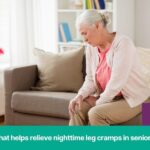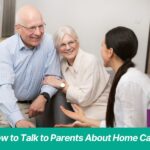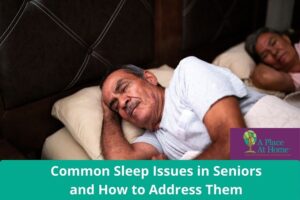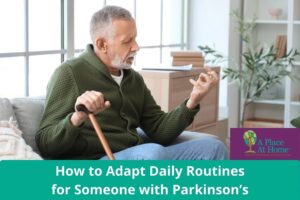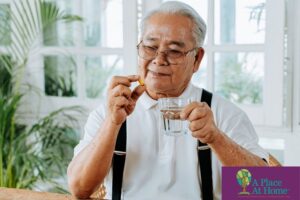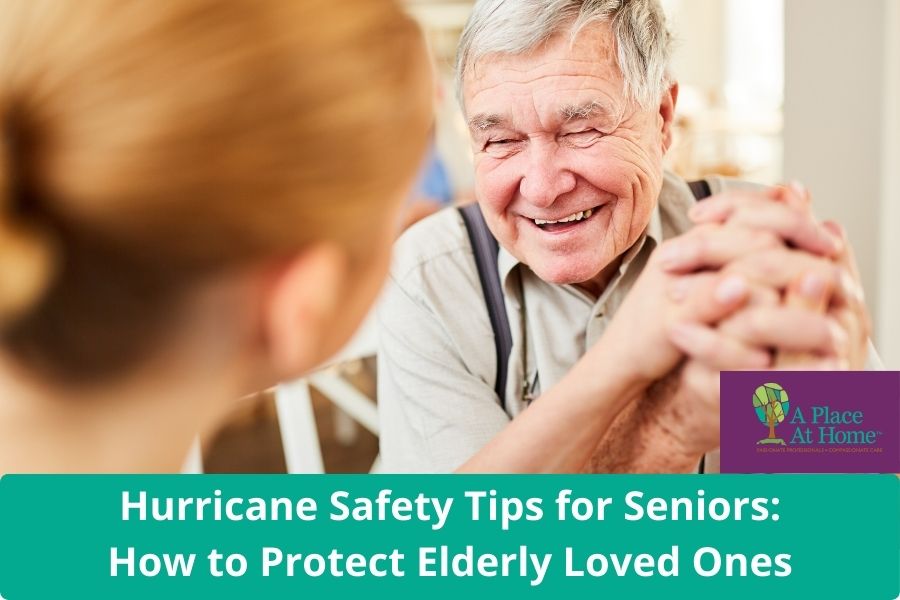
Hurricane season can pose serious risks for seniors, especially those facing mobility challenges, cognitive decline, or social isolation. Being prepared is essential to safeguarding their health, safety, and well-being. The following tips can help you protect your elderly loved ones when hurricanes threaten.
In the Atlantic basin, hurricane season runs from June through November, with peak activity typically occurring in August and September. While the most dangerous storms often happen mid-season, it’s crucial for seniors to remain prepared throughout the entire period.
For 2025, the National Oceanic and Atmospheric Administration (NOAA) anticipates an above-normal hurricane season, with a 60% likelihood of higher-than-average activity and only a 10% chance of below-average activity. Their forecast calls for 13 to 19 named storms with winds exceeding 39 mph, making early and thorough preparation more important than ever.
According to the CDC, older adults are more vulnerable in natural disasters — 71% of Hurricane Katrina victims were over 60. Florida’s high senior population (over 21% of residents are 65+) makes hurricane preparedness for older adults a critical safety measure.
What Threats Do Hurricanes Pose to Seniors?
Hurricanes can cause serious damage to properties and increase the hazards older adults face. Flooding and high winds are likely, causing destruction to the senior’s property and putting their lives at risk. Contaminated water and debris have the potential to cause injury or illness.
Power outages and evacuation challenges are also expected during hurricanes. Without electricity, it’s hard for seniors to keep their medications properly refrigerated, which causes the drugs to lose their potency. Medical devices that rely on electricity are rendered useless during a power outage.
FEMA notes that nearly 50% of hurricane-related deaths occur due to drowning, often because evacuation was delayed — another reason early planning is so important.
How Do Elderly Individuals Stay Safe?
Seniors face serious obstacles during hurricane season. Mobility challenges can make evacuation difficult. If they live alone, they may not receive the help they need to evacuate. Plus, cognitive issues can cause confusion during a time when clear thinking is crucial.
1. Create an Emergency Plan
Proper planning keeps the vulnerable aging population safe. Caregivers and seniors must work together to identify evacuation routes, accessible transportation options, and available shelters. Assign a point of contact so the older adult can check in and receive updates during the emergency.
In Weston and throughout Broward County, residents can pre-register for Special Needs Shelters through the local Emergency Management Division. These shelters offer power for medical devices and trained staff support.
Post a large-print list of important contacts—including friends, family, doctors, caregivers, and local emergency services—on the fridge or near the phone so that the older adult has immediate access to it during a hurricane warning.
2. Prepare an Emergency Kit
An emergency kit equipped with supplies can be a life-saver. The contents should meet the senior’s specific health, dietary, and mobility needs. Essentials to pack include:
- Seven days’ worth of medications
- Glucose monitor or other medical equipment
- Mobility aids, such as a cane or walker
- Copies of health insurance and ID cards
- Non-perishable food and water (one gallon per person per day for at least three days)
- A blanket and extra clothing
- Flashlights with extra batteries
Store these items in a waterproof container that the senior can easily access. A printable hurricane preparedness checklist for seniors can make packing faster and easier.
3. Learn About Senior-Friendly Resources
Determine whether the senior lives in an evacuation zone. If so, decide in advance where they will go—whether it’s a relative’s home, a hotel, or a community shelter.
Aging individuals who rely on medical devices should know the location of the nearest special needs shelter. Organizations like the Red Cross and FEMA offer free resources, apps, and alerts that can help caregivers and seniors stay informed.
4. Prepare the Home
The home should be as safe as possible during hurricane season:
- Remove clutter and trip hazards like rugs and cords. (see our guide on preventing falls in seniors for more tips on making the home safer).
- Secure outdoor furniture to prevent windborne hazards
- Trim trees to prevent branches from falling on the home
- Arrange for a backup power source for medical devices
- Install a medical alert system so emergency responders can quickly assist if needed
5. Stay Safe During the Storm
If the senior shelters in place:
- Choose a safe room away from windows with multiple walls between the senior and the outside
- Keep the emergency kit within arm’s reach
- Monitor weather updates and evacuation orders via a NOAA weather radio
- Reassure the senior often to ease anxiety
- Place generators away from windows to avoid carbon monoxide poisoning
After the Storm: Post-Hurricane Safety for Seniors
When the skies clear, the danger isn’t always over. After a hurricane, it’s important to stay alert and take extra precautions:
- Stay aware of hazards – Keep an eye out for downed power lines, standing water, or damage to the home’s structure.
- Wait for the all-clear on water – Don’t drink or cook with tap water until local officials confirm it’s safe.
- Protect against scams – Sadly, seniors are often targeted by post-disaster scammers offering fake repairs or aid. Verify credentials before letting anyone in or paying for services.
- Get ready for the next storm – Replenish supplies in your emergency kit so you’re prepared if another hurricane comes through.
How Caregivers Can Help Before and After a Hurricane
Whether a hurricane is on the way or the storm has just passed, having a trusted caregiver makes all the difference for seniors.
Before the storm, caregivers help seniors get ready — stocking the emergency kit, securing the home, reviewing evacuation plans, and arranging transportation to a safe place if needed. They can also make sure important medications, mobility aids, and documents are packed and ready to go.
After the storm, that same support continues. Caregivers check the home for safety, help clear away hazards, and coordinate with repair crews or utility companies. They make sure daily needs like meals, medication, and personal care are taken care of, even if the senior’s normal routine has been disrupted.
And through it all, caregivers offer something just as valuable as practical help — emotional reassurance. Knowing someone is there to guide, comfort, and advocate for them can bring seniors a sense of calm during one of the most stressful times of the year.
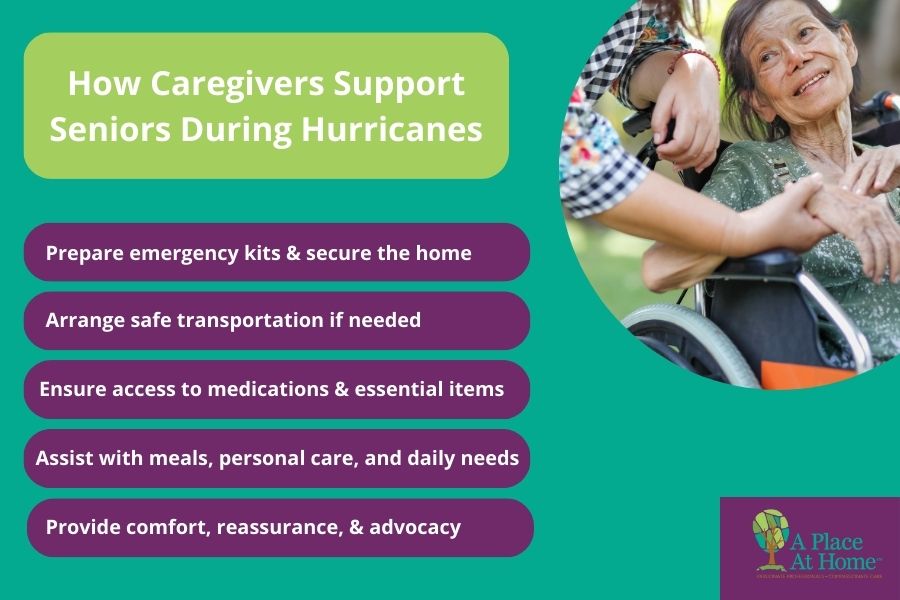
Elder Care from A Place At Home Weston Florida
The stakes are higher for seniors during hurricane season, especially for those living with chronic illness, dementia, or reduced mobility. You don’t have to face those challenges alone — the caregivers at A Place At Home-Weston are here to help keep your loved one safe and supported.
We proudly serve Weston, Davie, and Hollywood, Florida, providing professional, non-medical home care services year-round. Our team can:
- Monitor seniors during hurricane warnings and watches
- Provide reliable transportation and escort to shelters during evacuations
- Assist with daily needs such as meal preparation, medication reminders, and light household organization to keep living spaces safe and comfortable
Whether it’s before, during, or after a storm, we’re committed to helping seniors stay safe and giving families mental peace. Schedule a free in-home consultation today to learn how we can protect and care for your loved one throughout hurricane season — and all year long.
Frequently Asked Questions
Q. How can elderly people stay safe during a hurricane if they can’t evacuate?
As a care manager here at A Place At Home – Weston, I always remind families that if evacuation truly isn’t possible, preparation becomes the most important safety step.
Start by designating the safest room in the home — ideally one without windows and with multiple walls between your loved one and the outside. This helps protect against strong winds and flying debris. Keep their emergency kit close by, stocked with at least three days’ worth of food, water, medications, and any necessary medical supplies.
If they rely on medical equipment that needs electricity, set up a backup power source and make sure they know how to operate it safely. Keep a charged cell phone or battery-powered communication device nearby so they can stay in contact with family or emergency services.
Above all, they shouldn’t weather the storm alone. If you can’t be there in person, arrange for a trusted caregiver or neighbor to check in before, during, and after the hurricane. At A Place At Home, our caregivers are trained to support seniors through severe weather, keep them informed, and respond quickly if conditions change — ensuring their safety even when circumstances are challenging.
Q. Where can seniors find special needs shelters in Broward County?
In Broward County, seniors who have medical or mobility needs can register in advance for placement in a Special Needs Shelter through the Broward County Emergency Management Division. These shelters are equipped with backup power for medical devices, basic medical supervision, and accessible facilities to accommodate older adults with health challenges.
To sign up, you or your caregiver can complete the Special Needs Shelter Registration form, available on the Broward County website or by calling the Broward County Emergency Hotline at 311 (or 954-831-4000). Registration is recommended well before hurricane season begins, as spots can fill quickly once a storm is approaching.
At A Place At Home – Weston, we help seniors and their families complete shelter registration, prepare necessary documents, and arrange safe transportation when a hurricane is on the way. For seniors living in Weston, Davie, or Hollywood, we can also accompany them to the shelter and stay to ensure they’re comfortable and well-supported during the storm.
Q. What should seniors who use medical devices do if the power goes out?
For seniors who rely on medical devices such as oxygen concentrators, CPAP machines, or powered wheelchairs, a power outage during a hurricane can be dangerous. The safest approach is to plan ahead — long before a storm is in the forecast.
First, talk to your doctor or medical equipment provider about backup power options. This might include battery packs, portable generators, or manual alternatives for certain devices. If using a generator, place it outdoors and away from windows to prevent carbon monoxide buildup.
Keep extra batteries charged and store them in a waterproof container. If your device connects to oxygen tanks, make sure you have enough supply to last at least several days without power. You should also register with your utility company’s medical needs program so they know to prioritize your home during outages.
In Broward County, seniors can pre-register for Special Needs Shelters, which have backup power and medical staff available. At A Place At Home – Weston, we help seniors create a power outage safety plan, ensure backup equipment is ready, and provide in-home caregiver support to monitor their well-being until electricity is restored.
Q. How can older adults with limited mobility evacuate safely?
For seniors with limited mobility, evacuation requires extra planning and coordination. The first step is to identify accessible transportation options well before a hurricane warning is issued. This might include wheelchair-accessible vans, stretcher transport, or assistance through Broward County’s Paratransit Service.
It’s also important to choose an evacuation destination that’s mobility-friendly — such as a Special Needs Shelter or a family member’s home with step-free access. Make sure mobility aids like wheelchairs, walkers, or canes are in good working order, and pack any spare parts or chargers in the emergency kit.
At A Place At Home – Weston, our caregivers help seniors arrange transportation, gather essential medical and mobility equipment, and accompany them throughout the evacuation process so they arrive safely and comfortably.
Q. What hurricane preparations are most important for seniors with dementia?
For seniors living with dementia, hurricanes can be especially stressful and confusing. The key is to combine safety planning with steps that provide comfort and reduce anxiety.
Prepare an emergency kit that includes not just medications and medical records, but also familiar items — such as a favorite blanket, photos, or snacks — to help them feel more at ease. Keep a current, easy-to-read ID bracelet or card with their name, medical condition, and emergency contact information in case they become separated from their caregiver.
During evacuation or sheltering in place, maintain a calm, reassuring tone and stick to familiar routines as much as possible. Limit exposure to distressing news reports, and give simple, clear instructions.
Our team at A Place At Home – Weston is experienced in dementia care and can help ensure that safety measures are in place while also providing the steady emotional support seniors need before, during, and after a storm.
Q. How can seniors avoid scams after a hurricane?
Unfortunately, scams often spike in the days and weeks after a hurricane. Fraudsters may pose as contractors, utility workers, or charity representatives, hoping to take advantage of the chaos. Seniors can protect themselves by taking a few key precautions.
First, never pay for repairs or services upfront in cash. Reputable contractors will provide written estimates and accept payment only after the work is completed or in agreed-upon stages. Always ask for identification and verify licenses with the Florida Department of Business and Professional Regulation before allowing anyone to begin repairs.
Be cautious of unsolicited phone calls, emails, or door-to-door offers for disaster aid. If you’re donating to a relief organization, give only to trusted charities you can confirm through sites like Charity Navigator or directly through the Red Cross.
At A Place At Home – Weston, our caregivers can help seniors screen repair offers, contact verified service providers, and handle essential calls — making sure no one takes advantage of their situation during recovery.
As a care manager here at A Place At Home – Weston, I always remind families that if evacuation truly isn’t possible, preparation becomes the most important safety step.
Start by designating the safest room in the home — ideally one without windows and with multiple walls between your loved one and the outside. This helps protect against strong winds and flying debris. Keep their emergency kit close by, stocked with at least three days’ worth of food, water, medications, and any necessary medical supplies.
If they rely on medical equipment that needs electricity, set up a backup power source and make sure they know how to operate it safely. Keep a charged cell phone or battery-powered communication device nearby so they can stay in contact with family or emergency services.
Above all, they shouldn’t weather the storm alone. If you can’t be there in person, arrange for a trusted caregiver or neighbor to check in before, during, and after the hurricane. At A Place At Home, our caregivers are trained to support seniors through severe weather, keep them informed, and respond quickly if conditions change — ensuring their safety even when circumstances are challenging.
In Broward County, seniors who have medical or mobility needs can register in advance for placement in a Special Needs Shelter through the Broward County Emergency Management Division. These shelters are equipped with backup power for medical devices, basic medical supervision, and accessible facilities to accommodate older adults with health challenges.
To sign up, you or your caregiver can complete the Special Needs Shelter Registration form, available on the Broward County website or by calling the Broward County Emergency Hotline at 311 (or 954-831-4000). Registration is recommended well before hurricane season begins, as spots can fill quickly once a storm is approaching.
At A Place At Home – Weston, we help seniors and their families complete shelter registration, prepare necessary documents, and arrange safe transportation when a hurricane is on the way. For seniors living in Weston, Davie, or Hollywood, we can also accompany them to the shelter and stay to ensure they’re comfortable and well-supported during the storm.
For seniors who rely on medical devices such as oxygen concentrators, CPAP machines, or powered wheelchairs, a power outage during a hurricane can be dangerous. The safest approach is to plan ahead — long before a storm is in the forecast.
First, talk to your doctor or medical equipment provider about backup power options. This might include battery packs, portable generators, or manual alternatives for certain devices. If using a generator, place it outdoors and away from windows to prevent carbon monoxide buildup.
Keep extra batteries charged and store them in a waterproof container. If your device connects to oxygen tanks, make sure you have enough supply to last at least several days without power. You should also register with your utility company’s medical needs program so they know to prioritize your home during outages.
In Broward County, seniors can pre-register for Special Needs Shelters, which have backup power and medical staff available. At A Place At Home – Weston, we help seniors create a power outage safety plan, ensure backup equipment is ready, and provide in-home caregiver support to monitor their well-being until electricity is restored.
For seniors with limited mobility, evacuation requires extra planning and coordination. The first step is to identify accessible transportation options well before a hurricane warning is issued. This might include wheelchair-accessible vans, stretcher transport, or assistance through Broward County’s Paratransit Service.
It’s also important to choose an evacuation destination that’s mobility-friendly — such as a Special Needs Shelter or a family member’s home with step-free access. Make sure mobility aids like wheelchairs, walkers, or canes are in good working order, and pack any spare parts or chargers in the emergency kit.
At A Place At Home – Weston, our caregivers help seniors arrange transportation, gather essential medical and mobility equipment, and accompany them throughout the evacuation process so they arrive safely and comfortably.
For seniors living with dementia, hurricanes can be especially stressful and confusing. The key is to combine safety planning with steps that provide comfort and reduce anxiety.
Prepare an emergency kit that includes not just medications and medical records, but also familiar items — such as a favorite blanket, photos, or snacks — to help them feel more at ease. Keep a current, easy-to-read ID bracelet or card with their name, medical condition, and emergency contact information in case they become separated from their caregiver.
During evacuation or sheltering in place, maintain a calm, reassuring tone and stick to familiar routines as much as possible. Limit exposure to distressing news reports, and give simple, clear instructions.
Our team at A Place At Home – Weston is experienced in dementia care and can help ensure that safety measures are in place while also providing the steady emotional support seniors need before, during, and after a storm.
Unfortunately, scams often spike in the days and weeks after a hurricane. Fraudsters may pose as contractors, utility workers, or charity representatives, hoping to take advantage of the chaos. Seniors can protect themselves by taking a few key precautions.
First, never pay for repairs or services upfront in cash. Reputable contractors will provide written estimates and accept payment only after the work is completed or in agreed-upon stages. Always ask for identification and verify licenses with the Florida Department of Business and Professional Regulation before allowing anyone to begin repairs.
Be cautious of unsolicited phone calls, emails, or door-to-door offers for disaster aid. If you’re donating to a relief organization, give only to trusted charities you can confirm through sites like Charity Navigator or directly through the Red Cross.
At A Place At Home – Weston, our caregivers can help seniors screen repair offers, contact verified service providers, and handle essential calls — making sure no one takes advantage of their situation during recovery.

